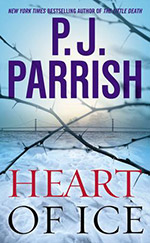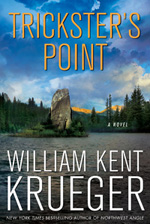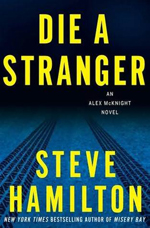P.J. Parrish: Heart of Ice
P.J. Parrish – or the sisters who write as P.J. Parrish – are paperback writers in the very best sense of the word. They deliver a good story, well told, with reliable characters and settings, asking only that their readers enjoy the journey they deliver. Almost always, they fulfill this promise. With their new novel, set on Mackinac Island, I was holding my opinion in reserve.
 Full disclosure: I grew up on Mackinac Island, so I wasn’t so sure they could get it right, having read other novels set on the island that had a misfire or two (or more). I was at first cautious but then more and more delighted as they really seemed to “get” the island (and it may help that one of the sisters lives in nearby Petoskey), but after awhile the story they were telling was simply so good, the island details really didn’t matter.
Full disclosure: I grew up on Mackinac Island, so I wasn’t so sure they could get it right, having read other novels set on the island that had a misfire or two (or more). I was at first cautious but then more and more delighted as they really seemed to “get” the island (and it may help that one of the sisters lives in nearby Petoskey), but after awhile the story they were telling was simply so good, the island details really didn’t matter.





